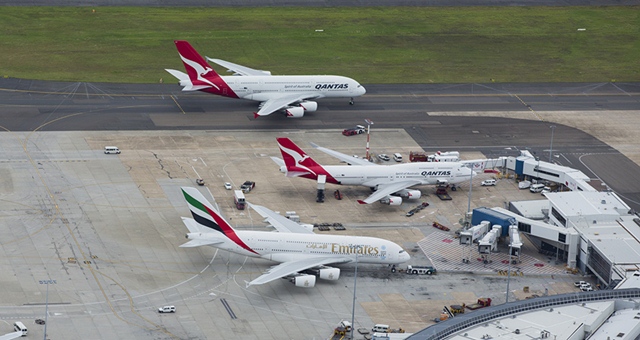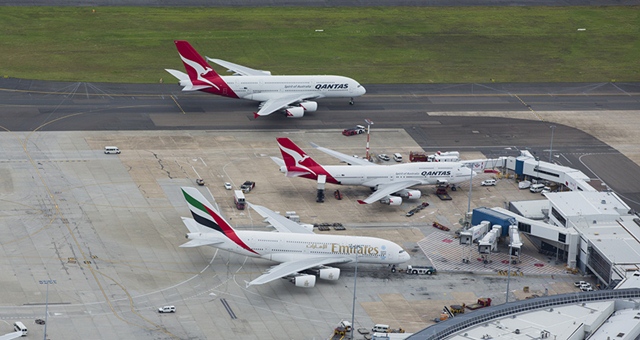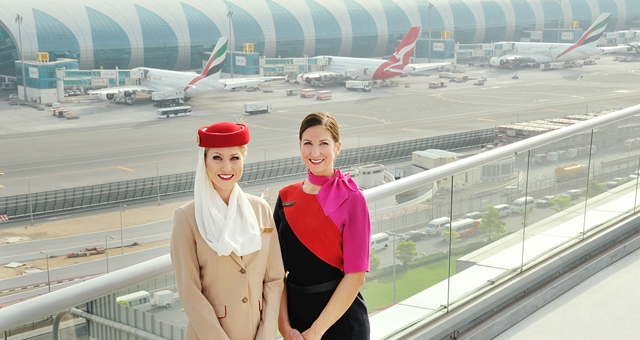Qantas and Emirates have announced network changes under the joint partnership which the airline say will provide customers with greater year round frequency and more services between Australia and New Zealand.
The airline say the changes “reflect customer demand” and Qantas and Emirates’ respective network strengths and provide more options for customers to travel between Australia and New Zealand to Asia, the UK/Europe, Middle East and Africa.
From March 2018, Emirates will stop flying from Melbourne and Brisbane to Auckland and instead focus on its non-stop Auckland-Dubai service.
Emirates will retain its existing daily A380 flights from Dubai to Christchurch via Sydney, and the airline says it is also evaluating potential new direct services between New Zealand and Dubai.
At the same time, to provide greater choice across the Tasman, Qantas will increase the frequency of its services between the two countries, adding seven new return flights per week between Melbourne and Auckland and an extra two return services per week between Brisbane and Auckland. Some of these services will be up-gauged from a 737 to a wide-body A330.
Qantas’ new trans-Tasman services will carry Emirates code and will connect seamlessly to Qantas’ London services via Perth or Singapore and Emirates’ services between Australia and Europe via Dubai.
These latest changes are included in the airlines’ application to the Australian Competition and Consumer Commission (ACCC) and New Zealand Minister of Transport for the extension of authorisation for the airlines’ joint business for another five years.
The airlines’ joint submission also includes, as previously announced, Qantas’ re-routing of its Sydney-London service via Singapore rather than Dubai and Emirates’ new, fourth daily A380 Sydney-Dubai service.
Emirates airline President, Sir Tim Clark, said the first five years of the partnership has been a success.
“Reauthorisation of the partnership will allow us to leverage our combined network strengths to offer customers even more flight choices and reciprocal benefits for our millions of frequent flyer members,” he said.
“It will enable us to continue developing world-class customer experiences, and contribute to stimulating increased opportunities for international trade, tourism and commerce.”
Qantas Group CEO, Alan Joyce, said the network changes outlined in the airlines’ submission to the regulators provide even more options for customers.
“Since 2013 we have delivered more choice and a larger network to eight million passengers who have travelled more than 65 billion kilometres on our joint network,” he said.
“We are now enhancing the partnership to reflect customer demand, new aircraft technology and our respective network strengths.
“The premise of the partnership has always been that we could serve our customers better together.
“That’s certainly been true for the past five years and now we’re evolving our joint network so we can serve them even better for the next five,” Joyce said.



